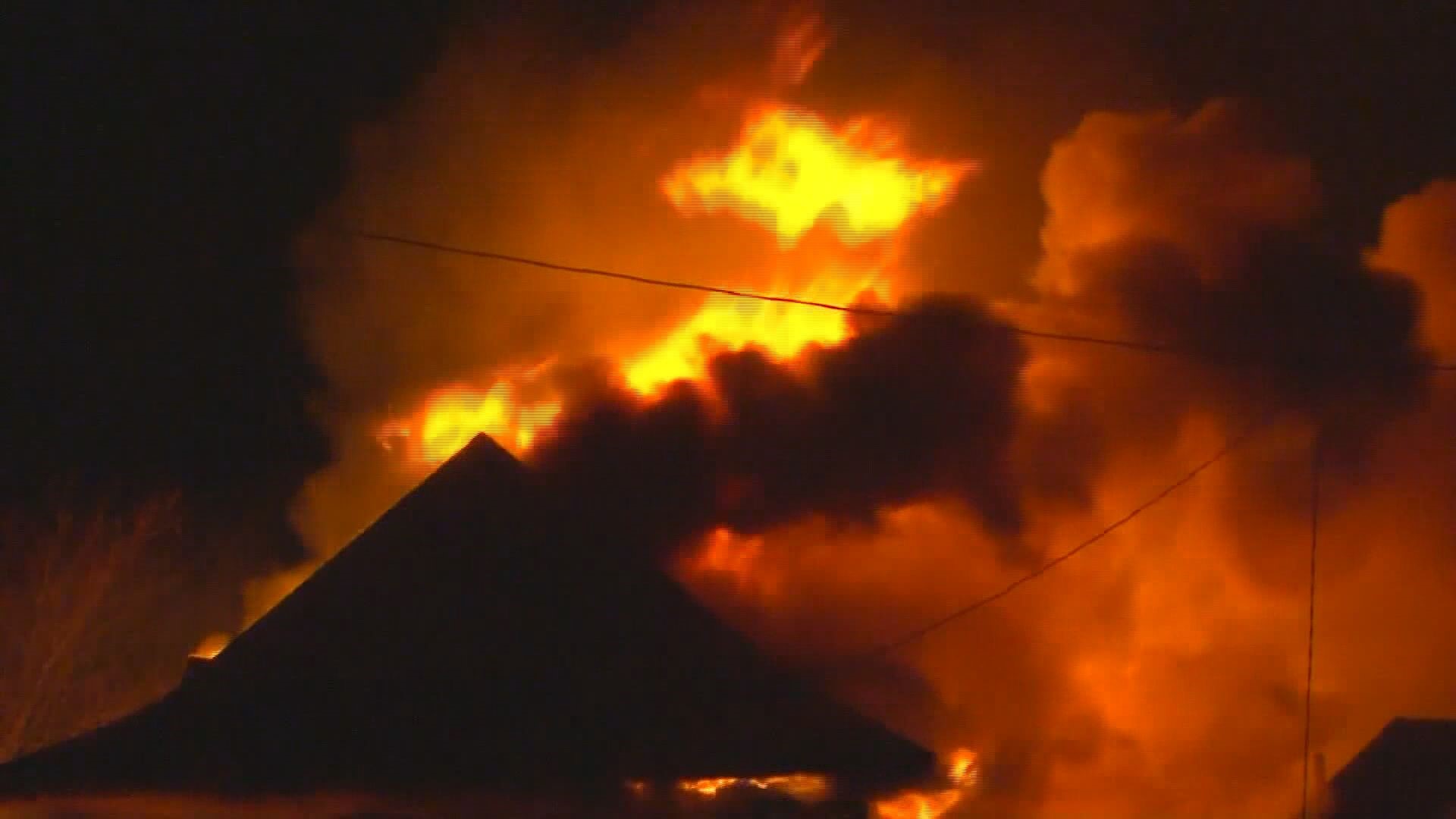GREENSBORO, N.C. — National Fire Prevention Week runs from October 4th to October 10th. This year's campaign is titled "Serve Up Fire Safety in the Kitchen." It's geared towards educating everyone about the simple but important actions they can take to keep themselves, and those around them, safe in the kitchen.
Fire Prevention Week is observed each year during the week of October 9th in commemoration of the Great Chicago Fire, which began on October 8, 1871, and caused devastating damage. The horrific conflagration killed more than 250 people, left 100,000 homeless, destroyed more than 17,400 structures, and burned more than 2,000 acres of land.
Since 1922, the National Fire Protection Association has sponsored the public observance of Fire Prevention Week. During the campaign each year, children, adults, and teachers learn how to stay safe in case of a fire. Firefighters also provide lifesaving public education in an effort to drastically decrease casualties caused by fires.
According to the NFPA, fire fighters responded to an estimated 1.3 million fires in the U.S. last year. Those fires caused roughly 3,700 deaths and more than 16,000 reported injuries. Statistics also show home fires were reported every 93 seconds. Fire officials say cooking is the number one cause of home fires and home fire injuries. Unattended cooking is the leading cause of fires in the kitchen.
The Greensboro Fire Department wants to help keep you safe in the kitchen. The fire department is hosting a free virtual cooking class on Wednesday at 6:30 p.m. The class is sponsored by Culinary U of the Triad. Renea Myers is the owner and chef. During the class, you’ll learn how to make Fried Buttermilk Chicken Tenders.
Dee Shelton is the fire and life safety educator with the Greensboro Fire Department. She will be on hand to pepper in some fire safety tips. If you plan on participating in the event, visit the City of Greensboro Fire Department Facebook page or Culinary U of the Triad Facebook Page. Once there, be sure to click the 'like' button and join the virtual Facebook live event.
Fire officials say you can make a difference in the fire safety of every room in your house. Smoke alarms are a key part of a home fire escape plan. When there is a fire, smoke spreads fast. Working smoke alarms give you early warning so you can get outside quickly. The NFPA offers the following cooking safety and smoke alarm tips:
Cook with Caution:
- Be on alert! If you are sleepy or have consumed alcohol don’t use the stove or stovetop.
- Stay in the kitchen while you are frying, boiling, grilling, or broiling food. If you leave the kitchen for even a short period of time, turn off the stove.
- If you are simmering, baking, or roasting food, check it regularly, remain in the home while food is cooking, and use a timer to remind you that you are cooking.
- Keep anything that can catch fire — oven mitts, wooden utensils, food packaging, towels or curtains — away from your stovetop.
- Have a “kid-free zone” of at least 3 feet (1 metre) around the stove and areas where hot food or drink is prepared or carried
If you have a small (grease) cooking fire and decide to fight the fire:
- On the stovetop, smother the flames by sliding a lid over the pan and turning off the burner. Leave the pan covered until it is completely cooled.
- For an oven fire, turn off the heat and keep the door closed.
If you have any doubt about fighting a small fire:
- Just get out! When you leave, close the door behind you to help contain the fire.
- Call 9-1-1 or the local emergency number from outside the home.
Smoke alarms save lives:
- Install smoke alarms in every bedroom. They should also be outside each sleeping area and on every level of the home. Install alarms in the basement.
- Large homes may need extra smoke alarms.
- It is best to use interconnected smoke alarms. When one smoke alarm sounds, they all sound.
- Test all smoke alarms at least once a month. Press the test button to be sure the alarm is working.
- Current alarms on the market employ different types of technology including multi-sensing, which could include smoke and carbon monoxide combined.
- Today’s smoke alarms will be more technologically advanced to respond to a multitude of fire conditions, yet mitigate false alarms.
- A smoke alarm should be on the ceiling or high on a wall. Keep smoke alarms away from the kitchen to reduce false alarms. They should be at least 10 feet (3 meters) from the stove.
- People who are hard-of-hearing or deaf can use special alarms. These alarms have strobe lights and bed shakers.
- Replace all smoke alarms when they are 10 years old.

